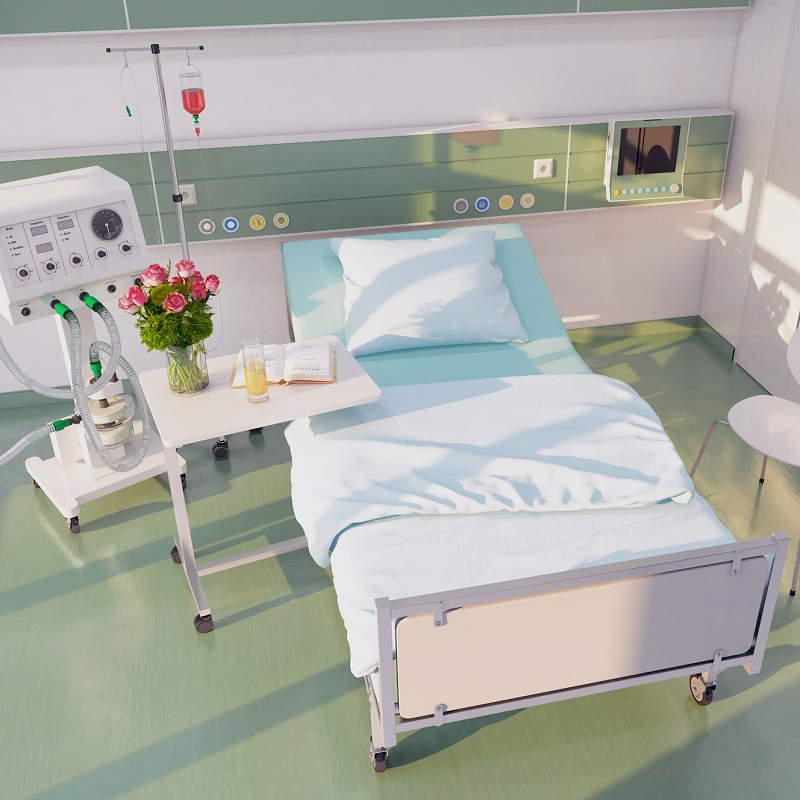Identity and the clothing we choose to wear are intimately linked. Research suggests it can also affect the health and wellbeing of people in care, for example, with Pyjama Paralysis.
The way we dress provides a lens through which others can develop an understanding of who we are as individuals. Moreover, evidence indicates that the clothing we wear also has an impact on our mood, personality, confidence and even the way we interact with others.
That all sounds about right, but have you ever considered, that the clothing assigned to us in hospital might actually be detrimental to our health? Pyjamas, coined as ‘the uniform of the sick’ by Professor Brian Dolan, a Visiting Professor of Nursing, Oxford Institute of Nursing, Midwifery & Allied Health Research, have recently endured a public bashing, for good reason.
How to end ‘Pyjama Paralysis’?
Earlier this year, Professor Brian Dolan founded a campaign to encourage elderly patients to wear their own clothes during hospital visits, instead of pyjamas or gowns. Using the hashtag #endPJparalysis, the inspiration behind Brian’s initiative was to motivate people to leave their beds, stand on their feet and get moving again.
The advantages of banishing bed-wear and combating Pyjama Paralysis in daytime hours are many. Patients will be able to maintain a sense of self and individuality, and thus will have a higher self-esteem, resulting in a more positive approach to recovery. The physical benefits promise the prevention of the loss of muscle strength, a reduced stay in hospital, a lower risk of infection, a faster recovery, a normal routine and, ultimately, patients being returned to their homes at a significantly reduced rate.
“One of the most valuable resources is a patients’ time and getting people up and dressed is a vital step in ensuring that they do not spend any longer than is clinically necessary in hospital.” – Professor Jane Cummings
Brian explains:
“Patients wearing their own clothes in hospital further enhances their dignity, safety and retains their sense of identity. When something works well for patients, it works for staff too. Encouraging patients to get dressed every day, rather than remaining in their pyjamas or a hospital gown, when they do not need to, boosts recovery and makes the most of precious time, so it can be better spent with loved ones.”
While the Pyjama Paralysis social media movement was originated by Brian himself, it was launched into action by NHS Chief Nursing Officer, Jane Cummings. A pilot undertaken just prior to the start of #endPJparalysis, gave patients back 91,728 days or 250 years’ worth of time, across nine trusts in the East of England – simply as result of getting patients up and dressed. Jane then rolled out a national 70-day challenge – with an ambition to have a million patient days captured in just 70 days. It began on 17th April to 26th June 2018 to finish in time for the NHS 70th anniversary celebrations on 5th July.
Newcross’ Head of Clinical Governance, Juliette Millard, put forward the valid point, that while the change is positive, dressing patients in the morning to avoid Pyjama Paralysis is already common practice in care homes across the country. In this way, hospitals are merely playing catch up. Charlotte Baranowski, our Clinical Governance Advisor shared similar thoughts:
“I think it’s a great idea, but it should be something that is happening already and shouldn’t have to have a campaign to enforce. Hospitals/ homes and other care environments should be proactively empowering patients/ service users to remain as independent as possible (within the individuals capability). The other benefit besides from getting the patient up and about and in more of their normal routine, is that its making healthcare professionals work together across a multi-disciplinary team more cohesively and with a unified, patient-centered goal.”
We ensure that all our staff have the appropriate training. A big part of this, is that they’re able to create a successful personalised care plan for our service-users, tailored to their personal requirements. We are very much looking forward to hearing the positive feedback from the #endPJparalysis campaign, which similarly puts NHS patients first.
For more articles on healthcare news, take a look at our blog.











